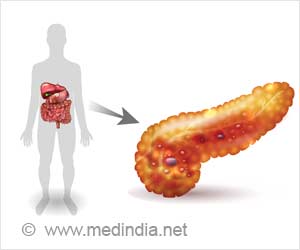Giving up smoking? You are at a greater risk of developing diabetes, because people who kick the habit put on weight, says a new study.
Giving up smoking? You are at a greater risk of developing diabetes, because people who kick the habit put on weight, says a new study.
Researchers from Johns Hopkins suspect the elevated diabetes risk is related to the extra pounds people typically put on after renouncing cigarettes and caution that no one should use the study's results as an excuse to keep smoking, which is also a risk factor for lung disease, heart disease, strokes and many types of cancer."The message is: Don't even start to smoke," says study leader Hsin-Chieh "Jessica" Yeh, Ph.D., an assistant professor of general internal medicine and epidemiology at the Johns Hopkins University School of Medicine.
"If you smoke, give it up. That's the right thing to do. But people have to also watch their weight," she adds.
In the study, published in the January 5 issue of Annals of Internal Medicine, researchers found that people who quit smoking have a 70 percent increased risk of developing type 2 diabetes in the first six years without cigarettes as compared to people who never smoked. The risks were highest in the first three years after quitting and returned to normal after 10 years.
Among those who continued smoking over that period, the risk was lower, but the chance of developing diabetes was still 30 percent higher compared with those who never smoked.
The study enrolled 10,892 middle-aged adults who did not yet have diabetes from 1987 to 1989. The patients were followed for up to 17 years and data about diabetes status, glucose levels, weight and more were collected at regular intervals.
Advertisement
According to the study, those who smoked the most and those who gained the most weight had the highest likelihood for developing diabetes after they quit. On average, over the first three years of the study, quitters gained about 8.4 pounds and saw their waist circumferences grow by approximately 1.25 inches.
Advertisement
TRI









